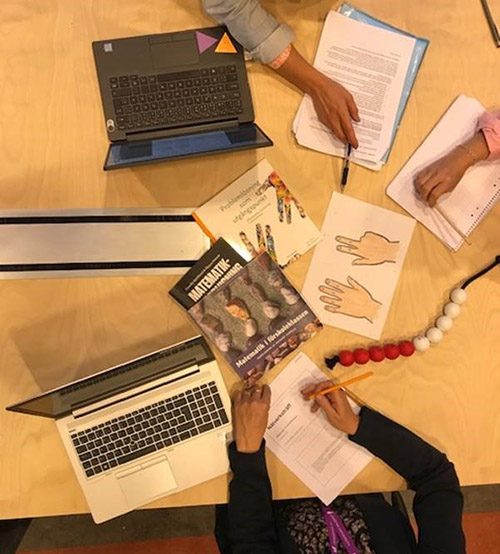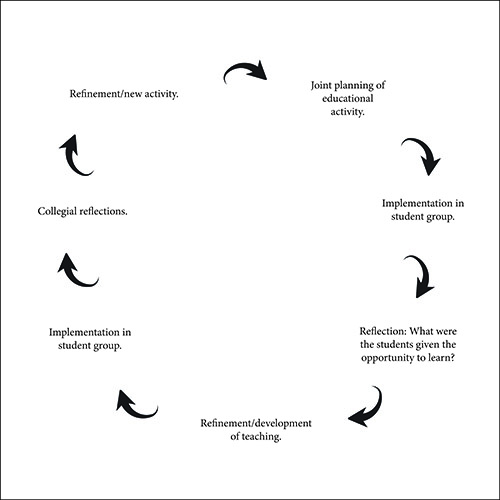Collaborations with municipalities in research-based teaching
Over the past few years, the School of Education and Communication (HLK) at Jönköping University has been participating in two ULF projects, one with the municipality of Vaggeryd and one with the municipality of Habo.

ULF, which stands for Utveckling, Lärande och Forskning (Development, Learning and Research), is a national pilot project carried out on behalf of the government between 2017 and 2021. The pilot project will develop and test sustainable collaboration models between academia and schools in the areas of research, school activities and teacher education.
The collaboration in the ULF project between HLK and Vaggeryd municipality officially started in the autumn of 2019 but was preceded by a long planning period. The project is unique as it involves all preschool class teachers in Vaggeryd municipality.
“An analysis of results in mathematics was carried out amongst students in Vaggeryd in Vaggeryd. It pointed to a need for development of mathematics teaching. It also showed the need to develop teachers competence of learning and teaching processes within their subject, so that they can create conditions where students can reach their learning goals,” says Klara Kerekes, senior lecturer in Vaggeryd municipality, who is involved in the project.
Klara Kerekes points out several positive aspects of the project,
“One of the advantages of the project is that all the teachers participate in collegiate learning. That is to say that the teachers (who come from several small school units within Vaggeryd municipality) meet regularly, together with researchers, in an environment where they can inspire and challenge each other in order to learn and develop in a municipality-wide context. The teachers have participated in the project for a year and some of them think this is the best competence development they have had,” she says.
The project aims to create sustainable models for how researchers at HLK can collaborate with teachers in other smaller municipalities. The model began testing at the end of 2019 and will be continuously developed by the teachers and researchers together. A cornerstone of the project is that everyone who participates in it, both teachers and researchers, plays an equally important role in its success.
“What distinguishes our model is this collegial learning, a cyclical process (see picture) with joint lesson planning that teachers try out in their classes. First they reflect on the teaching activity themselves, and then discuss it with colleagues and researchers. After the joint discussion, the teachers try the same activity again,” says Birgitta Lundberg, university lecturer in the research environment MER group (Mathematics Education Research group), who works with the project.
Anna-Lena Ekdahl, assistant professor in MER, elaborates,
“The researchers from HLK and the teachers meet about once a month and talk about teaching practices that give students the ability to reason about numbers. It can be about analyzing what mathematical content an activity can highlight, what questions to ask to the students, whether any material should be used and so on. Sometimes teachers film their lessons. The films can then be used at the following meeting when we analyze and reflect on the teaching and on what the students had the opportunity to learn. We also highlight previous research in the current area,” she says.

The cyclical process.
Anna-Lena Ekdahl, Klara Kerekes and Birgitta Lundberg agree that everyone involved - HLK, Vaggeryd municipality, the teachers and especially the children - benefit from this collaboration. They both hope for and believe in a long-term collaboration between Vaggeryd municipality and HLK.
“Klara Kerekes is already involved in mathematics courses in the teacher education program at HLK. Hopefully, teachers in the project will be able to do some lecturing on mathematics in preschool class in the preschool education courses as well as in the primary teacher program. In spring 2020, we linked student teachers’ degree work to the project and plan to continue with that during the academic year 2020–2021. Furthermore, our intention is that the teachers together with us researchers should research their own practice and that together we should spread knowledge about the project to other actors, both regionally and nationally,” Anna-Lena Ekdahl conclude.
If you have questions about the project, please contact Anna-Lena Ekdahl:
